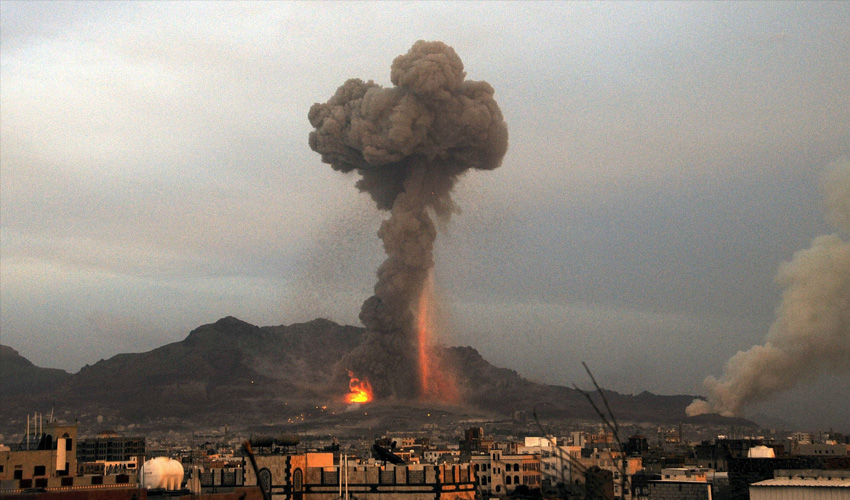In an ongoing response to increased Houthi attacks on military and shipping vessels in the Red Sea, the United States conducted additional airstrikes against Houthi targets in Yemen.
According to the US Central Command (Centcom), the strikes targeted a land-attack cruise missile and four anti-ship missiles that were poised for launch against ships in the Red Sea.
The Houthi attacks have forced major shipping companies to divert their routes, significantly impacting international trade. Egypt reported a nearly 50% plunge in revenue from the Suez Canal in January, with the number of ships passing through the crucial waterway decreasing by more than a third.
Joint US-UK strikes
A day prior to the latest strikes, the US and the UK jointly targeted Houthi locations, lighting up the night sky in the southern part of Yemen's capital, Sana'a. Local residents reported feeling the impact as houses shook during the airstrikes.
In response to the strikes, Houthi officials maintained a defiant stance. The group's military spokesman, Yahya Sarea, asserted that the attacks would not deter them from their support of the Palestinian people in Gaza. He vowed that the strikes "will not go unanswered or unpunished."
Escalation of US response in region
The White House emphasized that the recent airstrikes on Iran-backed targets in Iraq and Syria are just the beginning of their response to Iran. National Security Adviser Jake Sullivan warned that there will be "more steps" following the retaliatory strikes, triggered by the deaths of three US soldiers in a drone attack in Jordan.
The US retaliation faced condemnation from various quarters in the region, including the Iraqi and Syrian governments. Oman's foreign minister expressed "grave concerns over the continuous escalation," questioning the effectiveness of the retaliatory attacks and their impact on regional safety and stability.
US Secretary of State Antony Blinken is en route to the region, with planned stops in Israel, Egypt, Qatar, Saudi Arabia, and the West Bank. The top priority on his agenda is a hostage deal with Hamas to achieve a pause in hostilities in Gaza, according to National Security Adviser Jake Sullivan.
The situation remains tense, with uncertainties about potential further escalations and the geopolitical repercussions of the ongoing military actions in the region.



























